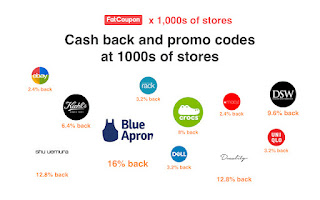Driving Innovation: How Mobile Technology Impacts the Automotive and Transportation Industry
Introduction
Mobile technology has transformed various aspects of our lives, and the automotive and transportation industry is no exception. From connected cars and smart navigation to ride-hailing apps and electric vehicle (EV) charging solutions, mobile technology has revolutionized the way we travel and interact with vehicles. In this article, we will explore how mobile technology impacts the automotive and transportation industry. These advancements improve safety, efficiency, convenience, and sustainability, reshaping the future of transportation.
Connected Cars and Telematics
Mobile technology has enabled the development of connected cars and telematics systems. Through in-car connectivity and mobile apps, drivers can access real-time traffic updates, vehicle diagnostics, and navigation services. Connected cars also enable remote vehicle control, allowing users to lock/unlock doors, start/stop engines, and control climate settings through mobile applications.
 |
| FAT COUPON |
Ride-hailing and Car-Sharing Services
Ride-hailing apps like Uber and Lyft have revolutionized the transportation industry. Mobile platforms connect passengers with drivers, offering convenient and cost-effective alternatives to traditional taxis. Car-sharing services like Zipcar and Turo utilize mobile apps to enable peer-to-peer car rentals, providing flexible transportation options and reducing the need for car ownership.
Mobile Ticketing and Fare Payments
Mobile technology has transformed ticketing and fare payment systems in public transportation. Mobile ticketing apps allow users to purchase and display tickets on their smartphones, eliminating the need for paper tickets and physical fare cards. This convenience streamlines the boarding process and improves the overall passenger experience.
.jpg) |
| TOP COUPON CODES |
Smart Navigation and Traffic Management
Mobile apps provide smart navigation and real-time traffic management solutions. These apps utilize GPS technology, traffic data, and machine learning algorithms to offer optimized routes, estimated arrival times, and alternative directions. Smart navigation improves efficiency, reduces congestion, and enhances the overall travel experience.
Electric Vehicle (EV) Charging Solutions
Mobile technology plays a vital role in the growth of electric vehicles (EVs) and charging infrastructure. Mobile apps enable EV owners to locate charging stations, check availability, and initiate charging sessions. These apps also provide real-time charging status and payment options, making EV charging more accessible and convenient.
Vehicle Maintenance and Service
Mobile apps facilitate vehicle maintenance and service management. Automakers and service providers offer mobile applications that allow users to schedule service appointments, receive maintenance reminders, and access vehicle manuals and warranty information. These apps ensure proactive vehicle care and enhance customer satisfaction.
Advanced Driver Assistance Systems (ADAS)
Mobile technology contributes to the development of Advanced Driver Assistance Systems (ADAS). Mobile apps integrate with ADAS features, such as collision avoidance, lane departure warning, and adaptive cruise control. ADAS technology enhances vehicle safety, reduces accidents, and improves overall road safety.
Fleet Management and Logistics
Mobile technology improves fleet management and logistics operations. Mobile apps provide real-time tracking of vehicles, optimize routes, monitor fuel consumption, and collect data on driver behavior. These capabilities enhance efficiency, reduce costs, and streamline supply chain management.
Enhanced Customer Experience
Mobile technology enhances the overall customer experience in the automotive and transportation industry. Mobile apps enable personalized user profiles, customized settings, and seamless integration with other smart devices. These features provide a convenient and tailored experience, increasing customer satisfaction and loyalty.
Autonomous Vehicles and Mobility as a Service
Mobile technology is integral to the development of autonomous vehicles and Mobility as a Service (MaaS) platforms. Autonomous vehicles rely on mobile connectivity for communication, data exchange, and remote monitoring. MaaS platforms utilize mobile apps for trip planning, booking, and seamless intermodal transportation experiences.
Conclusion
Mobile technology has a profound impact on the automotive and transportation industry, driving innovation and transforming the way we travel. From connected cars and ride-hailing apps to smart navigation and EV charging solutions, mobile technology enhances safety, efficiency, convenience, and sustainability. As mobile technology continues to advance, the automotive and transportation industry will witness further transformation, leading to improved mobility options, reduced congestion, and enhanced customer experiences. Embracing mobile technology's potential allows stakeholders in the industry to embrace the future of transportation and shape a more connected, efficient, and sustainable mobility ecosystem.
ARTICLE RELATED TO:
transportation, internet of Things transportation industry, innovations, and technology, new transportation technology, technology, internet of Things transportation, the future of transportation, automotive technology, IoT smart transportation, IoT transportation, internet of things in transportation, internet of Things smart transportation, a new technology that will change the world, future of transportation, machine learning in transportation, innovation
.jpg) |
Full-Stack Web Development In 7 Days Ebook |
FAQ
What digital innovations did we learn from the automotive industry?
These actions allowed us to identify several digital innovations from the automotive industry (e.g. vehicle connectivity, vehicle-to-vehicle infrastructure) as well as other industries related to the automotive industry (e.g. computer vision, machine learning, robotics).
What is mobile security?
In short, mobile security is cybersecurity for mobile devices. This includes protecting smartphones, tablets, and laptops from cyber threats like data loss, credential theft, account compromise, etc. Mobile devices have become an integral part of everyday life.
Do you need a mobile security solution?
Protecting against mobile security threats does not require a laborious process involving extensive security knowledge. A cybersecurity solution on your smartphone or tablet protects your device from Internet-enabled threats and protects your personal information from cyber thieves.












.webp)










